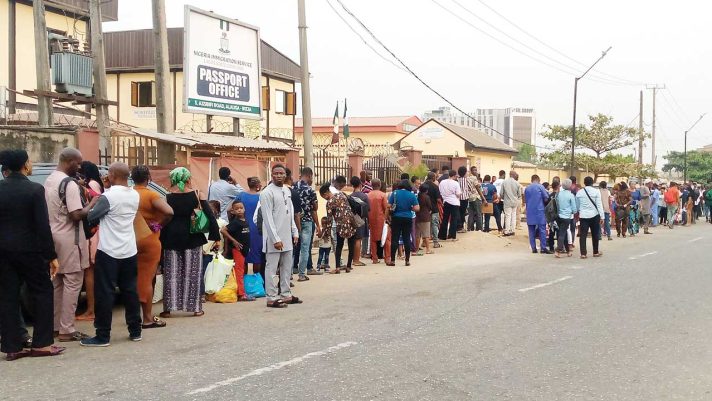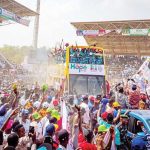By Maria Diamond (Lagos), Ann Godwin (Port Harcourt), Michael Egbejule (Benin City), Isa Abdulsalami Ahovi (Jos), Monday Osayande (Asaba), Ahmed Idris (Birni Kebbi), Ibrahim Obansa (Lokoja), Rotimi Agboluaje (Ibadan), Charles Ogugbuaja (Owerri), Tina Agosi Todo (Calabar), Julius Osahon (Yenagoa) and Ayoyinka Jegede
Angry reactions have continued to trail the twin problems of lingering fuel scarcity and poor implementation of the Central Bank of Nigeria’s (CBN) cash swap policy that have left many citizens cash strapped and unable to attend to their basic needs for about three days now.
Many Nigerians who vent their frustrations to The Guardian lamented that while they were battling to adjust to purchasing fuel at N350 – N400 per litre or spending the whole day at the Nigeria National Petroleum Company Limited (NNPCL) petrol stations to buy at government’s regulated price of N185 per litre, the CBN compounded their woes with the haphazard execution of its naira re-design and swap policy.
The frustration has triggered a near situation of unrest across the country, with people lamenting that they have money in the banks but were going about hungry because they can’t access it.
In Lagos State, there were protests in some parts of the state against the policy last Thursday, even as some commercial banks had a hectic time trying to calm their customers who became unruly following their inability to have access to their money.
This was as Point of Sale (POS) operators have cashed in on the situation to fleece their customers who now pay between N800 and N1000 to withdraw N5,000. Findings by The Guardian also showed that traders and petrol stations were selling cash to residents who were in desperate need of cash at the rate of N1,000 per N10,000.
Meanwhile, queues yesterday persisted at the ATM points of commercial banks branches in the state even though they attend to only customers who have an account with them.
“I spent 2.30 minutes at the ATM point of one of the commercial banks, but could only withdraw N10,000. That was because I have an account with the bank. People who came with other banks’ ATM cards could only withdraw N1,000. What will I do with N1,000 in a weekend? The government must do something urgent before the situation gets out of hand. A hungry man is an angry man,” said a resident who asked for anonymity.
Bisi Adekunle, a resident in Oke Afa area of the state, said: “I was not born during the war, but I am old and educated enough to know the definition of war – Nigeria is at war again and when there is war, nothing works! My husband couldn’t return home yesterday, because he spent the whole day at a bank in Victoria Island. He said he had to sleep over at a friend’s place, as he couldn’t get money to transport back home.
“However, that wasn’t even as disturbing as the pain of knowing his family were at home and couldn’t feed because there is no money. I literally begged a neighbour for bread, so my children can have breakfast before going to school. I have never felt so embarrassed, but I had to do it. These children fed on leftovers all through yesterday and by this morning, there are no leftovers and, so I had to shamefully beg a neighbour for bread for them. She gave us but had her own lamentation of the present situation of the country that I was compelled to listen to before she gave the half loaf of bread. So, when I say we are at war, you may want to look around the situation with the masses. When there is no access to money there is hunger, strife and anger. Before you know it, young boys will get into crime, robbery and killing. I don’t even want to address the fuel and electricity scarcity because that seems like something that can be controlled or managed if there is access to money.
Source: The Guardian








